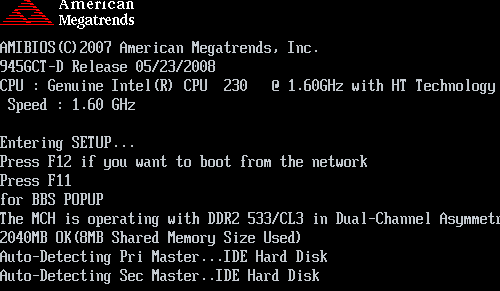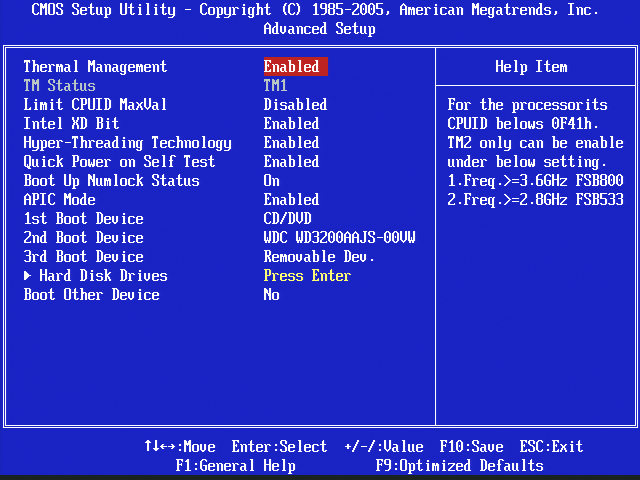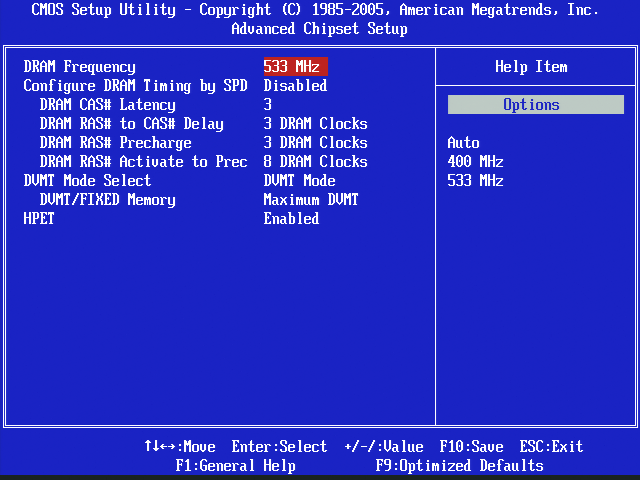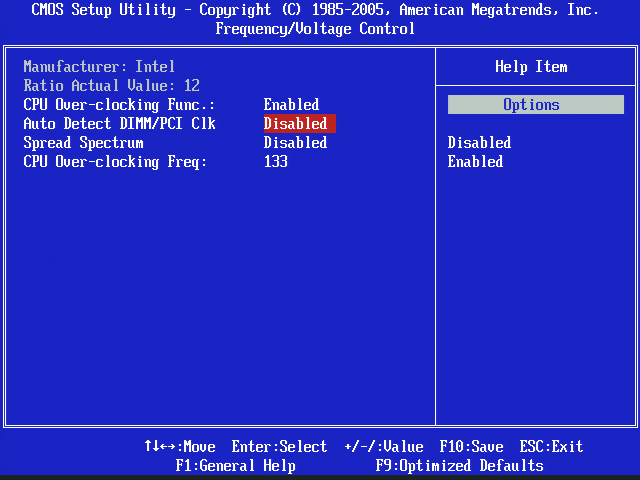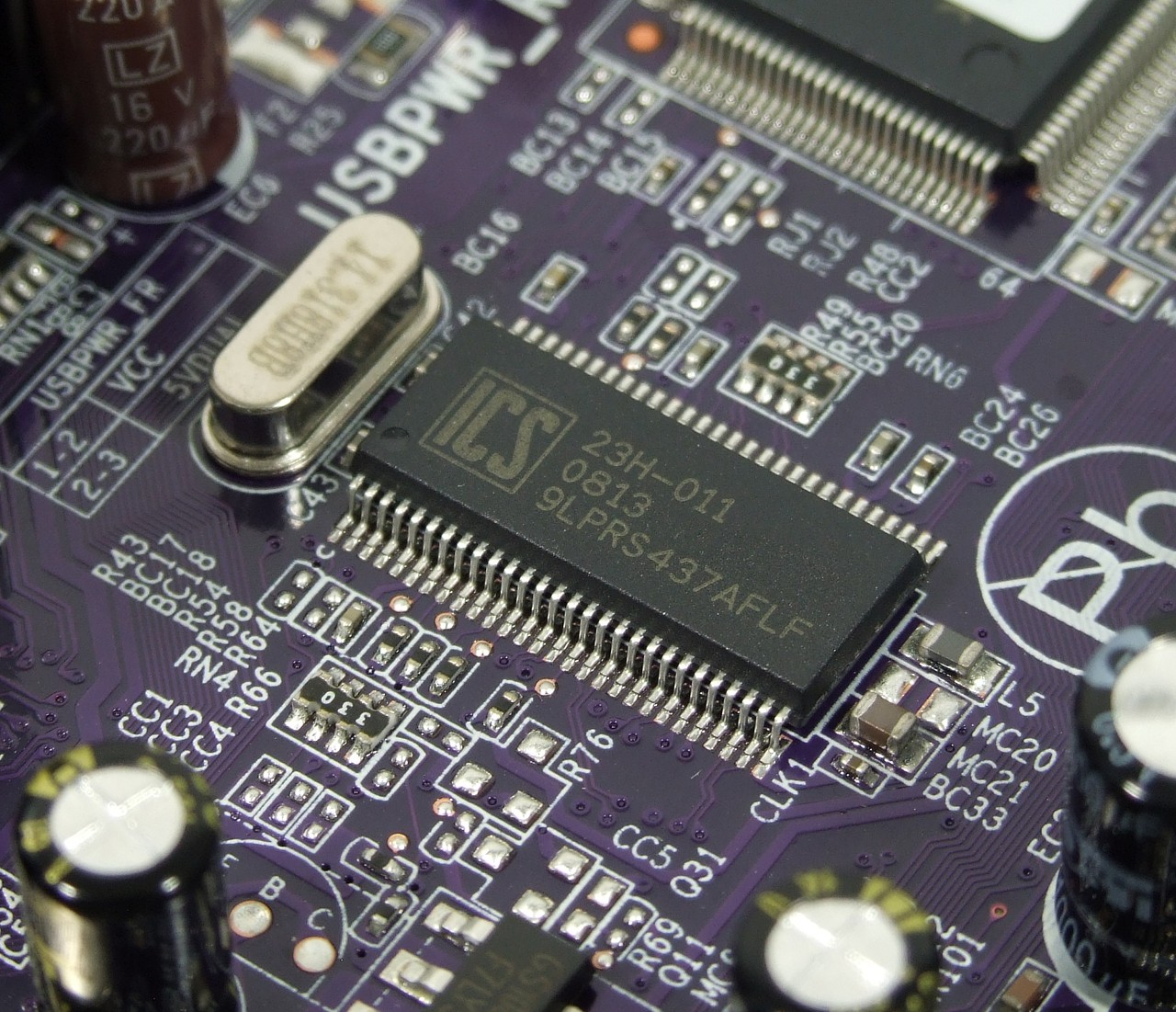Atom Benchmarked: 4W Of Performance
BIOS And Overclocking
BIOS and Settings
It is possible to deactivate processor features like Hyper-Threading and other onboard components through the BIOS.
Overclocking
The ECS 945GCT-D lets you to manually set the front side bus (FSB) speed in the BIOS. As it is not possible to increase the voltage of the CPU, the memory, or the chipset, it is difficult to achieve a high clock rate with the embedded board.
The default FSB setting is 133 MHz ; we were able to start the Atom board at 144 MHz, but the southbridge stopped working at this speed. We were only able to achieve a 2 MHz higher FSB clock rate with our board without experiencing problems.
The board is fitted with a 9LPRS437AFLF clock chip from ICS.
Get Tom's Hardware's best news and in-depth reviews, straight to your inbox.
Current page: BIOS And Overclocking
Prev Page ITX Motherboard, Continued Next Page Thermal Power Loss-
jaragon13 Shouldn't it be on 9 - cooling and temperatures,be idle and load,instead of idle and idle? >.Reply -
When you look at the power consumption on load and compare it to the slowness of the chip while performing on load, it becomes clear why it only uses 4 watts more...Reply
-
A CPU without a platform is useless.Reply
Analyzing the Atom platform quickly from the power/performance perspective.
CPU name / idle W / load W/ Lame (seconds) / total Lame W used
Atom 230 / 40.5 W / 44.2 W / 773 s / 9.49 W
Celeron 220 / 44.9 W / 55.4 W / 375 s / 5.77 W
E2140 / 58.5 W / 69.5 W / 271 s / 5.23 W
Clearly the Atom platform is the most inefficient power/performance wise.
At idle you might win some W, but as soon as you try to do something you spend more power and waste more time.
There are other things you should consider, the frustration of having to wait for things that now we are used to do near instant and the inability to play HD video or use any significant graphics.
The only thing positive for atom is it's price. It's cheap. And maybe with a new chipset it might even be power efficient. But for now it's just cheap.
-
neiroatopelcc I wonder if it'd be able to play games if one were to equip it with a pci based 2400pro & 4gb of memory?Reply
Also, I wouldn't be surprised if someone invents a voltmod for those boards, so they can increase voltage for cpu, mch & ich enabling 2ghz+ speeds -
nachowarrior so in other words atom is pretty much a failure unless it's pumped into a tablet or umpc? and even then apparently isn't cost effective or readily available, nice...sounds like a great product launch.Reply -
I ran a google search for ECS 945GCT-D mainboard, and could not find it.Reply
I don't get it, why do you publish tests with products that don't even exist on the vendor web site?
Thank you, anyway -
Lans Raiden, while your numbers are true, I think a fairer comparison would be to use 773s for all processors (meaning the rest go to idle alot quicker). I suppose you can power your computer down afterwards or start up a web browser etc.Reply
Atom 230 (773s load / 0s idle) : 9.5W
Celeron 220 (375s load / 398s idle): 10.7W
E2140 (271s load / 502s idle): 13.4W
Sempron LE-1100 (43.9W idle, 70.4W load, 301s load / 472s idle): 11.6W
Sure this is biased against the Atom (not going idle at all) but with 4W delta between load and idle, I am too lazy to change the numbers already used.
I find it comparing the Atom to a Sempron LE-1100 more and Celeron 220 interesting:
"A Celeron at 1.20 GHz is 35% faster than an Atom at 1.60 GHz, but the Atom only consumes a fraction of the energy used by the Celeron. The AMD Sempron system, which uses almost the same energy in idle mode as the Atom system, is 43% faster."
-
haley0918 in anyway, despite of the low power and low performance, i still think it'll also be good as simple file server or home server besides as umpc. for experts, it'll be enough for some robotics and control application. just like the one used for Aiko in http://www.projectaiko.comReply
